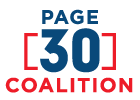Resources
Federal Guidance & Data
List of Services
-
US Small Business AdministrationLearn More
SBA Lender Match Program: For small businesses and non-profits to be matched with Community Development Financial Institutions (CDFIs), Minority Depository Institutions (MDIs), Certified Development Companies (CDCs), Farm Credit System lenders, Microlenders, as well as traditional smaller asset size lenders in the Paycheck Protection Program (PPP).
-
US Department of the TreasuryView Application
EZ and Revised Full Forgiveness Application for the PPP as of June 17, 2020
-
US Small Business AdministrationView Report
Interim Final Rule: Paycheck Protection Program – Eligibility of Certain Telephone Cooperatives as of June 5, 2020.
-
US Department of the TreasuryLearn More
Official PPP Loan Forgiveness Guidance.
-
U.S. Department of TreasuryLearn More List Item 1
Official CARES Paycheck Protection Program (PPP) Guidance.
-
U.S. Small Business AdministrationLearn More List Item 2
Official CARES Economic Injury and Disaster Loan (EIDL) Guidance.
-
U.S. Small Business AdministrationView Report List Item 3
REPORT: The Paycheck Protection Program (PPP) Report approvals through May 30th, 2020.
-
U.S. Department of LaborLearn More
Workplace and Employee Guidance and Rescources.
-
U.S. Small Business Administration & U.S. Department of TreasuryView FAQs
FAQs: The PPP program as of May 27th, 2020.
-
U.S. Small Business AdministrationDownload File
List of Participating PPP Lenders by State as of June 1, 2020.
WATCH: Senate Committee on Small Business & Entrepreneurship Hearing on COVID-19 Resources for an Equitable and Sustainable Recovery (July 24)
WATCH: House Committee on Small Business on the Paycheck Protection Program: Loan Forgiveness and Other Challenges (June 17)
WATCH: House Committee on Small Business on the Economic Injury Disaster Loan Program: A View From Main Street (June 10)
WATCH: House Committee on Small Business Subcommittee on Contracting and Infrastructure hold a Virtual Forum on How Small Businesses can Pivot their Business Models through Small Business Development Centers (SBDCs) (May 28)
WATCH: House Committee on Small Business Subcommittee on Innovation and Workforce Development hold a Virtual Forum on Issues Faced by Policyholders and Business Interruption Coverage (May 21)
WATCH: House Committee on Small Business Subcommittee on Rural Development, Agriculture, Trade, and Entrepreneurship Virtual Forum on Economic Challenges Rural Leaders are Facing (May 20)
WATCH: House Committee on Small Business holds a Virtual Forum to hear from the SBA Inspector General (May 15)
WATCH: House Committee on Small Business holds a Virtual Forum to hear SBA Lenders Discuss PPP and Future Recovery Efforts (May 13)
WATCH: House Committee on Small Business Hearing on the SBA's Implementation of the CARES Act (May 7)
Letter to Treasury on Reserving $10 billion to CFIs is the only way to ensure that businesses of color have access to this lifeline before the money runs out (April 27th)
Download FileDems letter to SBA and Treasury on re-implementation of PPP loans (April 27th)
Download FileList of Services
-
JP Morgan Chase & CO. Institute: Small Business Owner Race, Liquidity, and SurvivalDownload the Report
Black and Hispanic Americans comprise a substantial and growing share of small business owners. A
view of the fnancial performance
of the frms they own is critical to understanding the extent to which the sector can deliver broad-based growth during an expansion, or where to focus policy attention and resources during a downturn. This report attempts to fll this gap by leveraging voter registration data from Florida, Georgia, and Louisiana to create a sample of nearly 150,000 small businesses with self-identifed owner race. We use this new data asset to inform diferences in small business fnancial outcomes and survival by owner race from 2013 to 2019.
-
Ranking Member Ben Cardin (D-MD) and Senate Dems Letter to Treasury and SBA on CARES Transparency and OversightView the Letter List Item 1
We write regarding transparency and oversight of two small business programs enacted as part of the Coronavirus Aid, Relief, and Economic Security Act (CARES Act): the Paycheck Protection Program (PPP) and the Economic Injury Disaster Loan (EIDL) and Emergency Grants Program. April 17th, 2020
-
Association for Enterprise Opportunity: Tapestry Project ReportDownload the Report List Item 2
AEO’s report, The Tapestry of Black Business Ownership in America, paints a picture of the rich diversity of businesses that weave a tapestry of Black business ownership throughout the country. Moreover, the report makes a case for addressing the complex interplay among three acute challenges impeding Black business development: a massive wealth gap, credit gap, and a trust gap fueled through bias.
-
Prosperity Now: Communicating on Race and Racial Economic Equity GuideDownload the Guide List Item 3
While this guide was first published for internal use in 2017, we have since recognized that the field, our partners, the communities we serve and the funders we work with could also find it useful. Now, it is available as a resource for anyone committed to developing best practices to communicate about and address the racial wealth divide and advance racial economic equity.

Page 30 Coalition | All Rights Reserved |
Created by Olive + Ash.
Managed by Olive Street Design.
